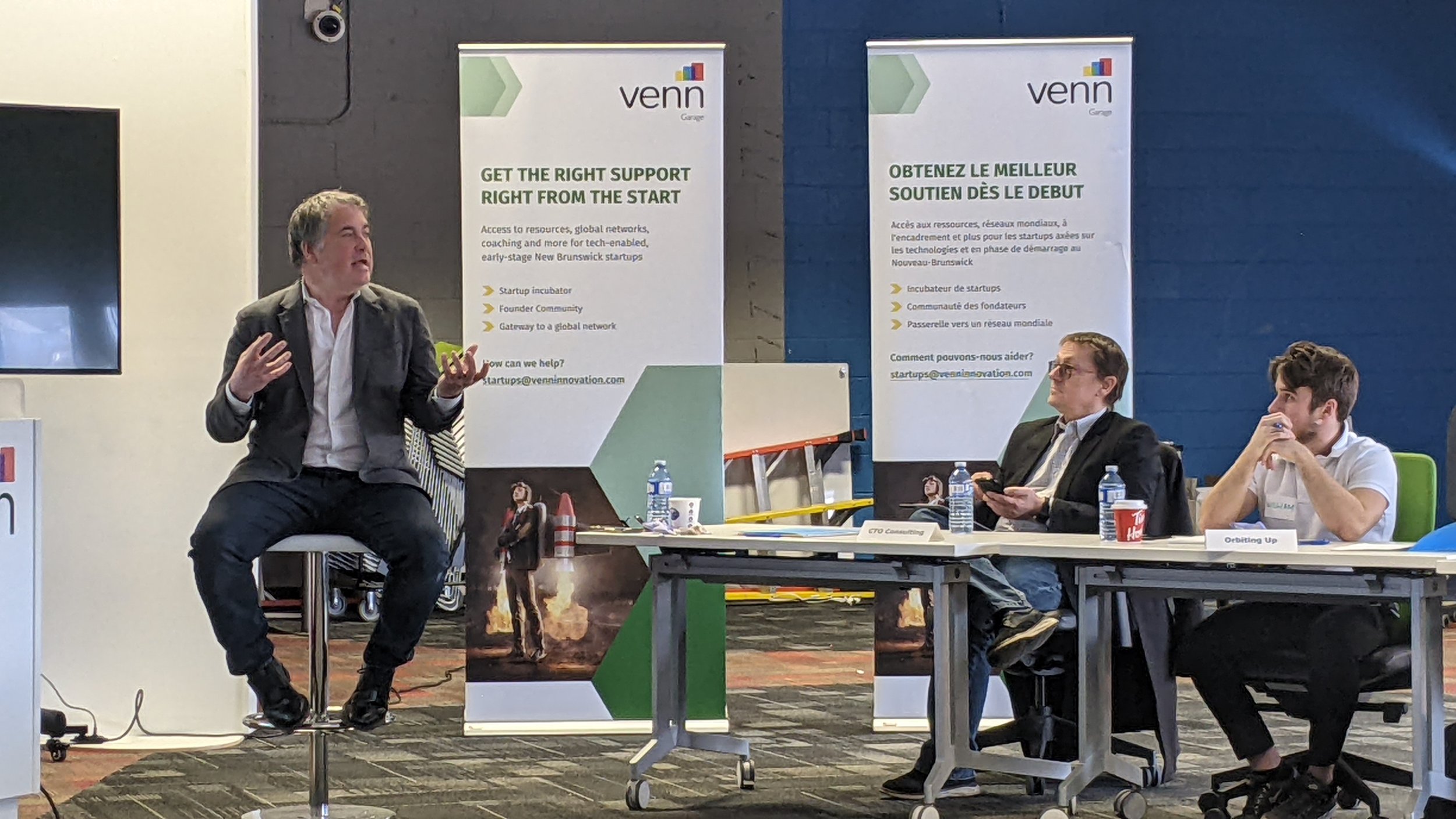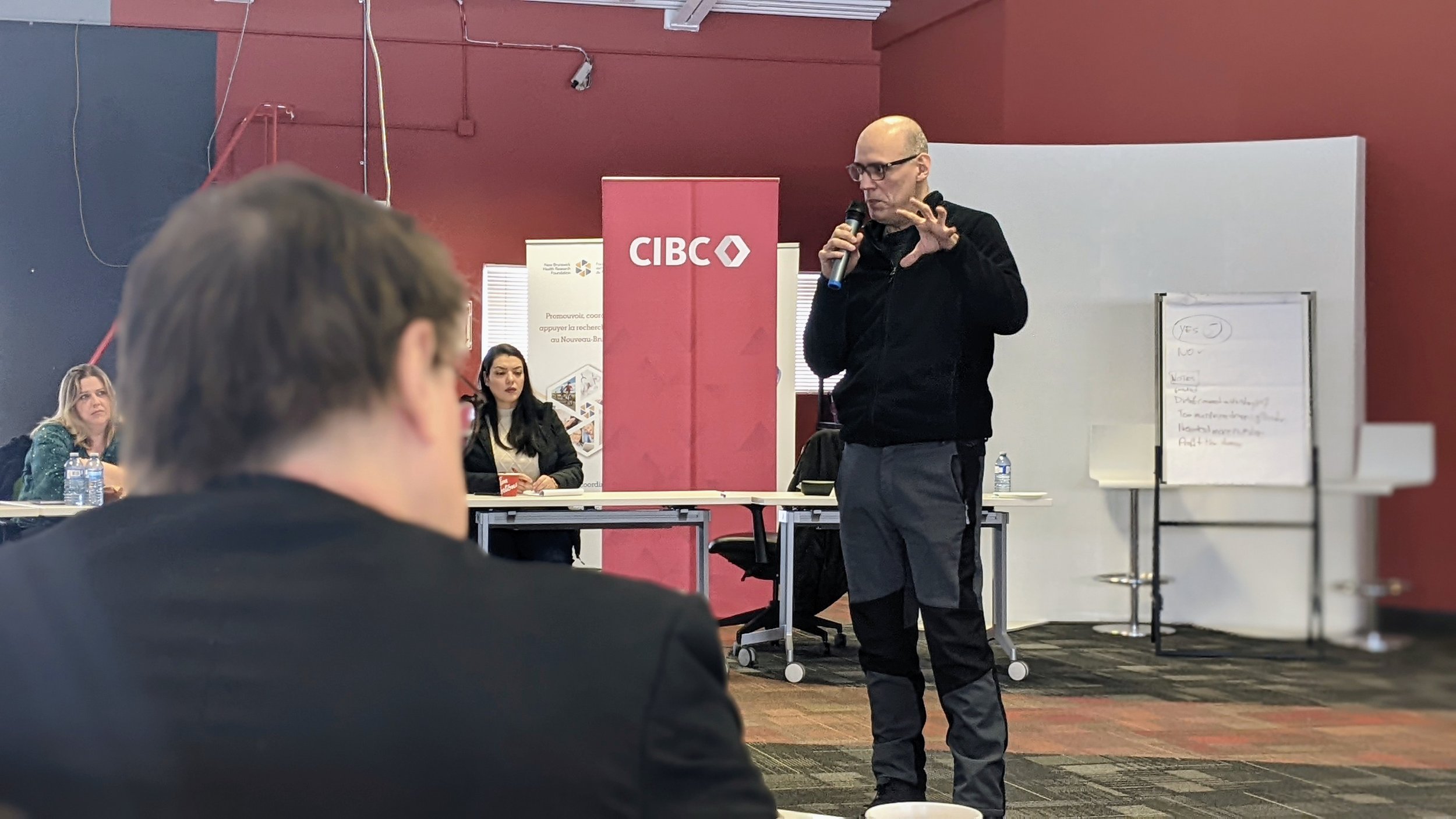Venture Capital Investment – Introduction to Important Concepts
A backgrounder on VC investment, based on key concepts and learnings from the recent Valhalla Founders Basecamp at Venn, from the desk of Kyle Murray-Zelmer, Program Manager, Atlantic Market Intelligence.
Here is a look at what founders should know if they are thinking of VC as an investment vehicle for their startup.
Business Plan
VCs want you to clearly articulate the following: your idea; customer strategy; Intellectual Property (IP); team; deal goals; & anticipation of successful completion of the deal so the VC gets a return on their investment. Also describe early indications of product acceptance; potential for future product market fit (PMF). Note that you can’t have real product market fit until the customers (cx) buy it at scale. You should have multiple cx and know your attainable market size. If you can’t keep with cx demand, this is a good sign you have product market fit. Being in a vertical is not a deal maker. VCs want you to have a coherent plan for profitability.
The point of the pitch is to say you have something that works, and you want guidance on how to go forward. Identify the place you are in your journey, your needs, and plan. Don’t talk to a VC until you are firmly in Seed territory. Then make the initial inquiries, say you will be in touch later: always be talking to your next round, but don’t be talking to 2 or 3 ahead.
Leadership/Control
Founders, especially in early-stage companies sometimes have a desire to maintain full control, aka to be a sort of king. If a founder asks about control or how the investment will impact it, then it can make them look not ready. Instead, the founder should have the acumen to negotiate what they want. You can’t take VC and still be king: its one or the other. VCs will want to know where the exit is from the beginning, and any contingency plans in case things do not go as hoped. If you are running a high-growth business with VC capital, you are stewarding the money, it is not “your” money.
When VCs come in, they get Board seats which is usually a good thing but changes the power structure. Even if the founder has, say 60% of the company, they don’t really have “control.” VC investors can fire the founder if they cause problems. Make sure you understand what the VC wants and what they can do before you accept money. Show that you are easy to work with.
Technology Validation
Investment decisions include due diligence. Your product needs to be functional. Be prepared to back up your claims with proof. Make sure the IP is registered to the company, not individuals. During the pitch, however, focus on the business aspects, not the science and technological nuances.
Startup Valuation
For theory on how to assign value to pre-revenue startups and in general, see: After 20 years: Updating the Berkus Method of valuation | BERKONOMICS. Make sure you understand deal structure and can converse with the potential investor without having to confer with others. Be prepared to justify how you came up with your valuation.
The intangible value of a company is not necessarily what it is “worth” in terms of a buyout through a firm. They look at just the numbers, which may be way lower than the mystique of the “soul” of the company: this is called the multiple, which valuates based on both the numbers and the spirit/ethos of the company, which is often approx. 4x, but can be significantly more with high-status companies. Investors can drive valuation, for example, if there is a lot of interest, like with a house selling over the asking price. It can increase the value of the company if a lot of syndicated investors want in. Be aware that VCs don’t care about sweat equity: it does not factor into your company’s valuation.
Deal Making
VCs look for ventures with good product, sales strategy, and leadership they think can run a successful business and grow in the real world. For many entrepreneurs, the challenge is not as much getting access to investor money, but what to do with it & how it will help them get to the next stage. Make sure you are ready to tell the VC your terms, the kinds of shares or deal type on offer, what you want to negotiate, what is not negotiable, & about your company culture.
Note that startups tend to talk about percentages, while businesses talk about unit prices and shares. Each round, you are adding fresh new shares, which dilute the old ones. Shareholders only get their say at the shareholder meeting. It is the Board which has the power. Angel investors don’t typically take Board seats because it is a lot of work and not productive for them: they tend to use the sprinkle and sprout option; doling out cash gradually, with milestones, and then seeing how it goes. VCs, on the other hand, assert influence on the Board because you are putting them in the cockpit with you.
There are many forms of deal structures: debt, equity, or something in between such as a Convertible Note or a SAFE. Brokers are an option as well, but they are typically motivated by fees, not deal quality, and founders should beware. Go after only the amount of capital you need to make it to the next stage. Deals will die on bad deal structure or mis-aligned valuation.
It is not bad that you have competitors, in fact, they may end up being the entity that ultimately buys your company: competition can be good.
Further research
This is strongly recommended before approaching VCs. You can get started with insightful articles from Valhalla Private Cap here.
Disclaimer:
This backgrounder on VC investment is provided for general information only. It is based on excerpts from my notes on a Valhalla Founder Basecamp but it does not necessarily represent their views and is not guaranteed in any way. There are many types of investment vehicles and approaches. VC is one option, and within this option, there are varying theses espoused by different VC investors. Entrepreneurs are encouraged to learn about concepts in detail before pitching to potential investors. The book, Venture Deals, by Brad Feld & Jason Mendelson offers a good start.

























